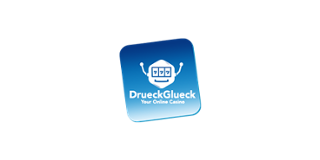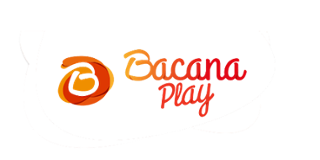
Vegas Hero
Bonus
25 Freispiele mit einer Mindesteinzahlung von €10
Withdrawal Limits (Month):
7000
Payout Period:
72 hours
Visit Site
All casinos operate under specific terms and conditions, including wagering requirements, eligibility restrictions, and withdrawal limits. Please review the full T&Cs on the casino’s website before playing. 18+ | Gamble responsibly.
Casino Popularity Trends
+442
Trending Up
Search Dynamics
5563 Games Available

Jackpot games

Craps and dice

Keno

Scratch cards

eSports betting

Crash games

Poker

Baccarat

Betting
Video poker
Bingo
Roulette
Blackjack
Slots
Live games
Show More Details 
Less info 

Wildz
Bonus
Zahlen Sie 10 Euro ein und spielen Sie mit 50 Euro + 100 Freispiele
Withdrawal Limits (Month):
100000
Payout Period:
Up to 3 business days
Visit Site
All casinos operate under specific terms and conditions, including wagering requirements, eligibility restrictions, and withdrawal limits. Please review the full T&Cs on the casino’s website before playing. 18+ | Gamble responsibly.
Casino Popularity Trends
-10355
Trending Down
Search Dynamics
5185 Games Available
Jackpot games
Craps and dice
Keno
Scratch cards
eSports betting
Crash games
Poker
Baccarat
Betting
Video poker
Bingo
Roulette
Blackjack
Slots
Live games
Show More Details 
Less info 

LunaSlots Casino
Bonus
100% bis zu 100 Euro + 50 Freispiele
Withdrawal Limits (Month):
10000
Payout Period:
Up to 3 business days
Visit Site
All casinos operate under specific terms and conditions, including wagering requirements, eligibility restrictions, and withdrawal limits. Please review the full T&Cs on the casino’s website before playing. 18+ | Gamble responsibly.
3500 Games Available
Jackpot games
Craps and dice
Keno
Scratch cards
eSports betting
Crash games
Poker
Baccarat
Betting
Video poker
Bingo
Roulette
Blackjack
Slots
Live games
+7 MoreLess
Show More Details 
Less info 

DrückGlück

Bonus
100% bis zu 100 Euro + 50 Freispiele
Withdrawal Limits (Month):
10000
Payout Period:
2-7 days
Visit Site
All casinos operate under specific terms and conditions, including wagering requirements, eligibility restrictions, and withdrawal limits. Please review the full T&Cs on the casino’s website before playing. 18+ | Gamble responsibly.
Casino Popularity Trends
+58
Trending Up
Search Dynamics
5929 Games Available
Jackpot games
Craps and dice
Keno
Scratch cards
eSports betting
Crash games
Poker
Baccarat
Betting
Video poker
Bingo
Roulette
Blackjack
Slots
Live games
Show More Details 
Less info 

BacanaPlay

Bonus
100% bis zu 100 Euro + 25 Freispiele
Withdrawal Limits (Month):
30000
Payout Period:
up to 5 business days
Visit Site
All casinos operate under specific terms and conditions, including wagering requirements, eligibility restrictions, and withdrawal limits. Please review the full T&Cs on the casino’s website before playing. 18+ | Gamble responsibly.
Casino Popularity Trends
-840
Trending Down
Search Dynamics
5084 Games Available
Jackpot games
Craps and dice
Keno
Scratch cards
eSports betting
Crash games
Poker
Baccarat
Betting
Video poker
Bingo
Roulette
Blackjack
Slots
Live games
Show More Details 
Less info 

Casinorex
Bonus
300% bis zu 1000 EUR + 100 Freispiele
Withdrawal Limits (Month):
15000
Payout Period:
Up to 3 business days
Visit Site
All casinos operate under specific terms and conditions, including wagering requirements, eligibility restrictions, and withdrawal limits. Please review the full T&Cs on the casino’s website before playing. 18+ | Gamble responsibly.
Casino Popularity Trends
+90
Trending Up
Search Dynamics
5002 Games Available
Jackpot games
Craps and dice
Keno
Scratch cards
eSports betting
Crash games
Poker
Baccarat
Betting
Video poker
Bingo
Roulette
Blackjack
Slots
Live games
+1 MoreLess
Show More Details 
Less info 

Wild Fortune
Bonus
20 Freispiele bei der Registrierung
Withdrawal Limits (Month):
15000
Payout Period:
Up to 3 bussiness days
Visit Site
All casinos operate under specific terms and conditions, including wagering requirements, eligibility restrictions, and withdrawal limits. Please review the full T&Cs on the casino’s website before playing. 18+ | Gamble responsibly.
5268 Games Available
Jackpot games
Craps and dice
Keno
Scratch cards
eSports betting
Crash games
Poker
Baccarat
Betting
Video poker
Bingo
Roulette
Blackjack
Slots
Live games
Show More Details 
Less info 

Swift Casino

Bonus
100% bis zu 100€ + 50 Freispiele für Book of Dead
Withdrawal Limits (Month):
10000
Payout Period:
up to 5 business days
Visit Site
All casinos operate under specific terms and conditions, including wagering requirements, eligibility restrictions, and withdrawal limits. Please review the full T&Cs on the casino’s website before playing. 18+ | Gamble responsibly.
Casino Popularity Trends
-4215
Trending Down
Search Dynamics
5426 Games Available
Jackpot games
Craps and dice
Keno
Scratch cards
eSports betting
Crash games
Poker
Baccarat
Betting
Video poker
Bingo
Roulette
Blackjack
Slots
Live games
Show More Details 
Less info 

Spinia Casino
Bonus
25 Freispiele für den Slot Book of Darkness
Withdrawal Limits (Month):
40000
Payout Period:
Up to 3 business days
Visit Site
All casinos operate under specific terms and conditions, including wagering requirements, eligibility restrictions, and withdrawal limits. Please review the full T&Cs on the casino’s website before playing. 18+ | Gamble responsibly.
Casino Popularity Trends
+778
Trending Up
Search Dynamics
5327 Games Available
Jackpot games
Craps and dice
Keno
Scratch cards
eSports betting
Crash games
Poker
Baccarat
Betting
Video poker
Bingo
Roulette
Blackjack
Slots
Live games
Show More Details 
Less info 

Slots n’Play Casino
Bonus
100% bis zu 50 Euro + 100 Freispiele
Withdrawal Limits (Month):
7000
Payout Period:
Up to 3 business days
Visit Site
All casinos operate under specific terms and conditions, including wagering requirements, eligibility restrictions, and withdrawal limits. Please review the full T&Cs on the casino’s website before playing. 18+ | Gamble responsibly.
4289 Games Available
Jackpot games
Craps and dice
Keno
Scratch cards
eSports betting
Crash games
Poker
Baccarat
Betting
Video poker
Bingo
Roulette
Blackjack
Slots
Live games
Show More Details 
Less info 




